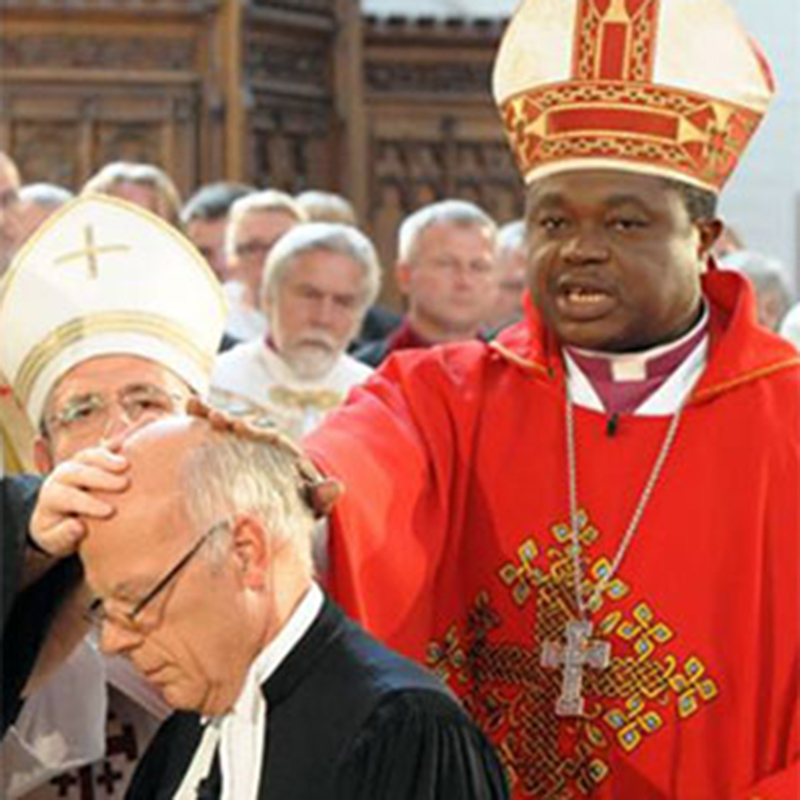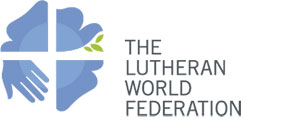Lutherans Worldwide

During the last four centuries, Lutheran people emigrated from Europe to many parts of the world, and wherever they went, they founded new Lutheran communities. The tendency was for people of the same background and language to form a 'synod'. Over time, synods would come together to form churches.
During the same period, especially during the time of colonial expansion, Lutheran missionaries went to many countries and began missions. These missions became young churches as new Christians matured in faith and indigenous leaders emerged. For example, German, American and Australian missionaries laboured side-by-side in colonial New Guinea, and in 1956 (long before political independence was given serious consideration), a new church was born.
As a result of this missionary zeal, there are Lutheran churches on every inhabited continent and in almost all countries, even if, in some cases, it is a small presence.
The number of Lutherans in Europe is about 37 million and, in North America, it is a little over 7.7 million, plus 1.1 million for Latin America and the Caribbean. The Lutheran church is growing the fastest in Africa, where the number of Lutherans is heading towards 20 million. In Asia, too, there is rapid growth in some areas so, today, there are almost 9 million Lutheran Christians, 5.6 million of whom are Indonesian. In little over a century, the number of Lutherans in our neighbouring country Papua New Guinea has grown to more than 1 million. The number of Lutherans in Australia and New Zealand is relatively small: around 30,000 baptised members (although more than three times that number claimed to be Lutheran in the last Australian Government census).
There is much diversity in the global family of Lutheran churches. The defining feature is the acknowledgement of the Lutheran confessional writings, especially the Augsburg Confession, and instruction in the faith, based on the Small Catechism of Martin Luther. Most Lutheran churches follow a liturgical tradition that goes back to Martin Luther’s reform of the liturgy. The almost bewildering diversity among Lutherans is due, in large part, to a strong consciousness of their freedom in the gospel.

How LCANZ serves the world
LCA International Mission works collaboratively with overseas partner churches to bring the life-changing news of Jesus Christ to people in South-east Asia and Papua New Guinea. We seek to equip, encourage, engage in and support the growth of holistic ministry carried out in relationship with our partners overseas and the individuals, congregations and districts of the LCANZ.

ALWS is the overseas aid and development agency of the Lutheran Church of Australia and New Zealand. ALWS reaches out in love, for justice. We bring together people willing to work in service to help end suffering. As partners, we work openly and accountably, supporting programs that welcome, respect and bring hope through care to those fleeing from, or hurt by, disaster, conflict, poverty or oppression. We add our voice to the voices of those unheard and excluded, together crying out for justice so that we can all live in just and sustainable communities.

International Lutheran organisations
Most Lutheran churches in the world today belong to the Lutheran World Federation (LWF), which claims a membership of more than 75.5 million people in 148 member churches in 99 countries. The Lutheran Church of Australia (LCA) is an associate member of the LWF. A further 3.7 million people belong to other Lutheran churches. The biggest grouping after the LWF is the International Lutheran Council, of which the LCA is also an associate member.
How did we do?
Did you find what you were looking for? Did you find anything out of date or not working properly? Please tell us how we can improve this page.




